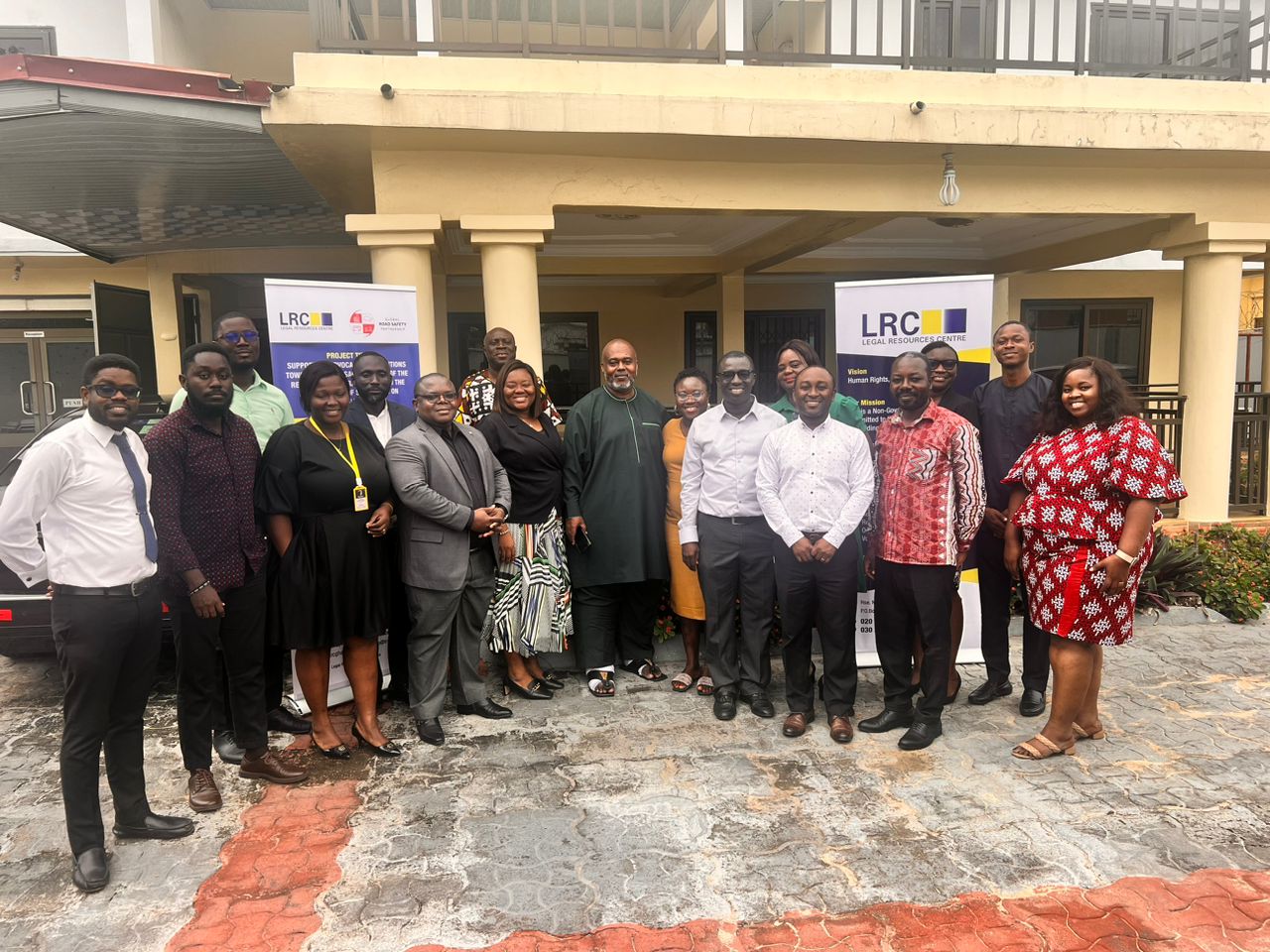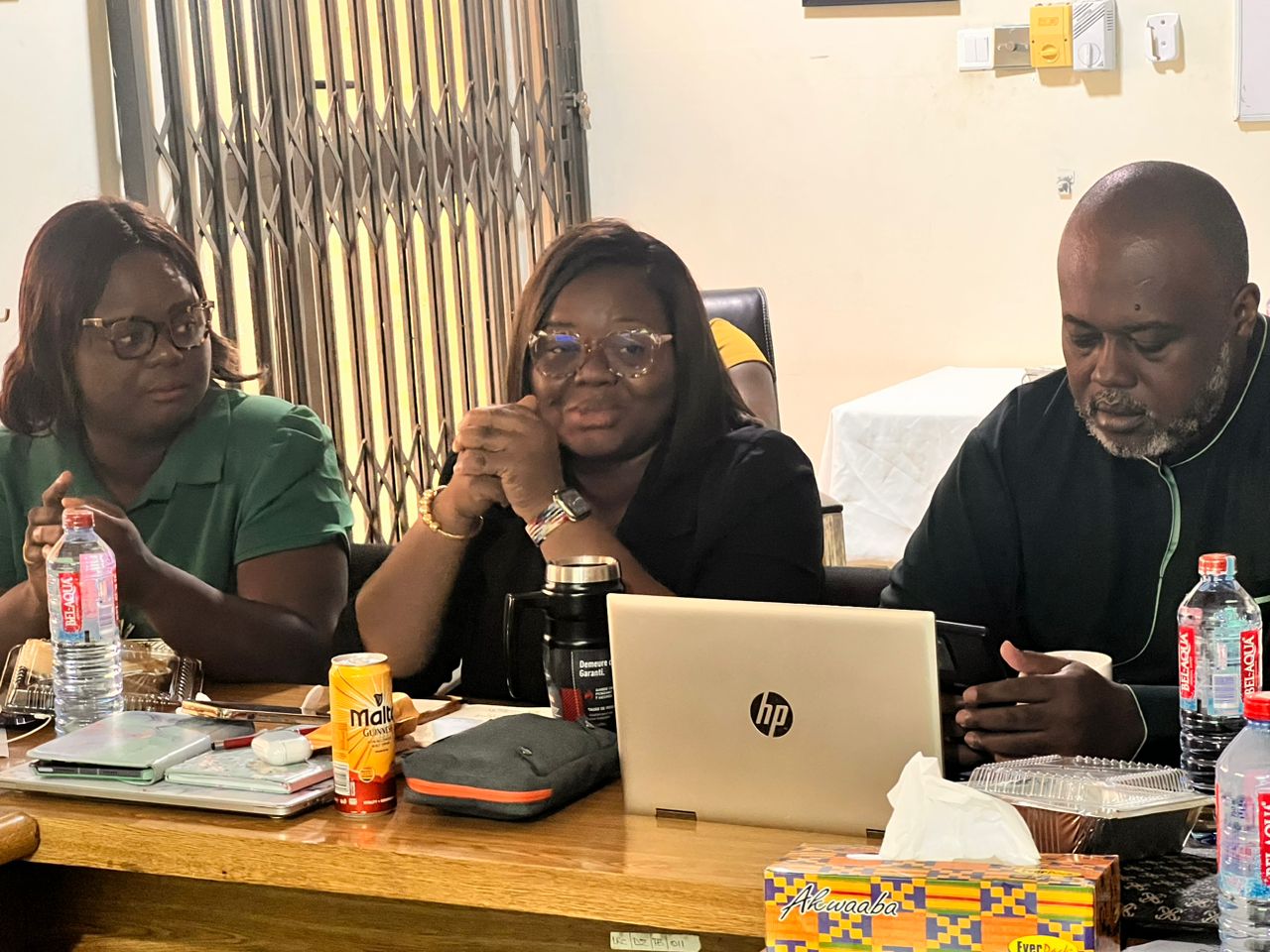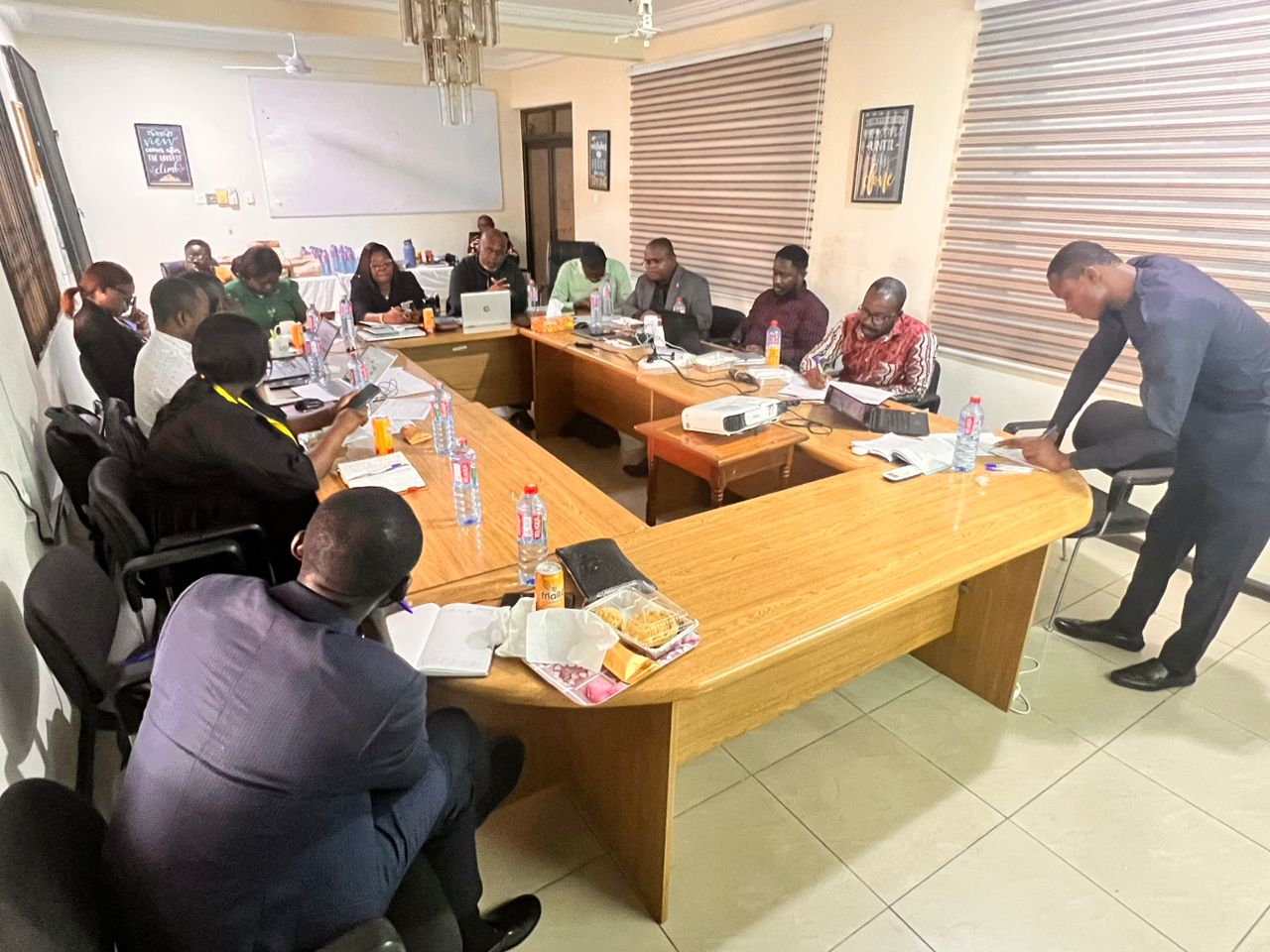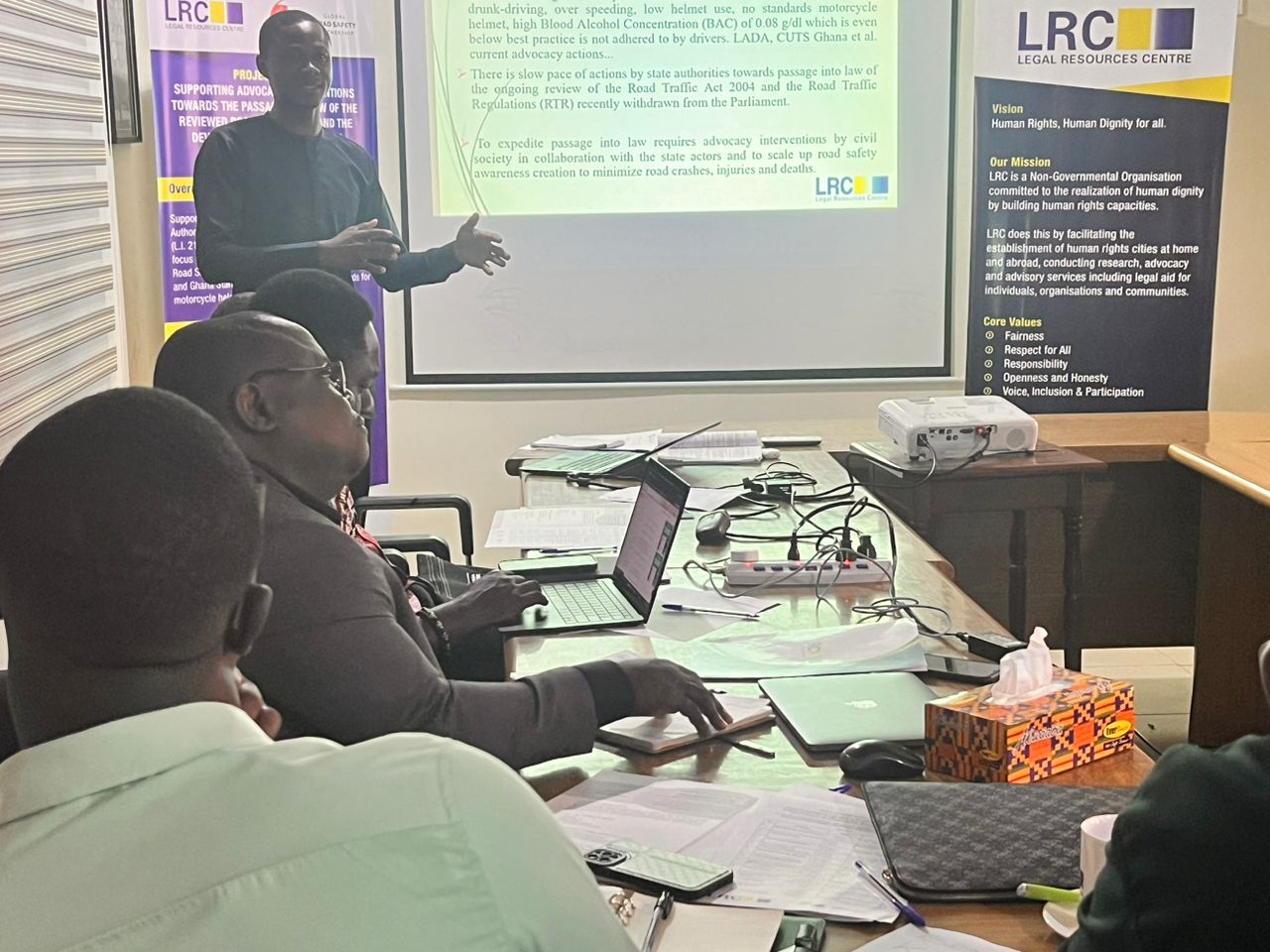
The Legal Resources Centre (LRC) has commenced implementation on a project on road safety in Ghana. The project dubbed “Supporting Advocacy Interventions Towards The Passage Into Law Of The Reviewed Road Traffic Act And The Development Of Standards on Motorcycle Helmets” aims at supporting the Ministry of Transport (MoT), National Road Safety Authority (NRSA) to amend the Road Regulations 2012 (L.I. 2180), the Road Traffic Act 2004 (Act 683) with a focus on speed, and supporting the MoT/NRSA, Driver Vehicle Licensing Authority (DVLA) and Ghana Standards Authority (GSA) to develop standards on motorcycle helmets in Ghana.
At a stakeholders meeting held on Tuesday, 30th July 2024 at the LRC office with both state and non-state actors working in the road safety industry, the Executive Director of the LRC, Daphne Lariba Nabila revealed that with the funding support from the Global Road Safety Partnership, the LRC`s project will contribute immensely to on-going interventions that seek to ensure good road safety practices in Ghana.

According to Ms. Nabila, the Road Traffic (Amendment) Regulations 2024 which was recently laid in Parliament has been withdrawn from Parliament primarily because it contained a provision which sought to grant Members of Parliament (MPs), Judges, and Ministers the privilege to use sirens and to exempt them from speed limits while performing their official duties. This she intimated, is an opportunity for a broader stakeholders’ engagement to iron out teething issues which affected it being passed into law. She stressed that as the LRC implements this project, the organization will bring its legal expertise to bear in supporting the state institutions towards the amendment of the Road Traffic (Amendment) Regulation 2024 and the Road Traffic Act currently being revealed.

Presenting on the project deliverables at the meeting, a Programme Officer of the LRC, Enock Jengre indicated that according to the World Health Organization (WHO), Africa is the globe’s least motorized region, accounting for just 3% of the world’s vehicles. Yet it records the highest rate of road deaths. He added that WHO pegs the rate in Africa at 26.6% deaths per 100,000 people and that according to the WHO status report for last year 2023, sadly, road crash deaths rose by 17% in Africa.
He asserted that even though Ghana may be doing well in terms of its efforts to minimizing road crashes, injuries and deaths, much was required by all to meet the target set out in the Second Decade of Action for Road Safety, with a goal of reducing road traffic fatalities and injuries by at least 50 percent between 2021 and 2030.
Mr. Jengre bemoaned the statistics from the National Road Safety Authority which discloses that between January and June 2024 only, a total of 1, 237 deaths and 7, 561 injuries were recorded in road safety crashes in Ghana. According to him, road safety issues are human rights issues, and that every life matters, hence, concerted efforts such as much more attention was paid to dealing with the behavioral risk factors (causing road traffic injuries such as drunk driving, helmet use, child restraint system, speeding and not wearing seatbelt) to ensure that Ghana minimizes road crashes, injuries and deaths.

On this project, Mr. Jengre indicated that the LRC would collaborate with all the stakeholders to ensure that Ghana`s roads become much safer to road users as doing so will greatly minimize road crashes, injuries and deaths.
On his part, a Coordinator for Bloomberg Initiatives for Global Road Safety in Ghana, Mr. Osei Kufuor, highlighted the need for collaboration among civil society organizations (CSOs) in their advocacy interventions to meaningfully contribute towards minimizing road crashes, injuries and deaths in Ghana. He called on the CSOs working in the road safety industry to build partnerships and synergies in their advocacy interventions on the five key behavioral risk factors causing road traffic injuries such as drunk driving, helmet use, child restraint system, speeding and not wearing seatbelt.





